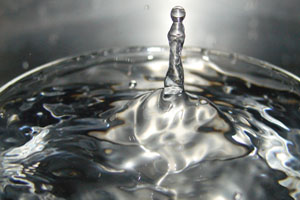Seven Deadly Health Sins
 Behind many of the debates about healthcare in the US—its availability and cost as well as its effectiveness—is an important phenomenon. The demands being placed on healthcare providers are growing and changing (at least in large part) because of the way we live our lives. Day-to-day choices we all make are contributing to a wide variety chronic health conditions that are sometimes referred to as “lifestyle diseases.” And while our healthcare system is very good at treating acute medical problems, it is not very good at preventing or treating chronic ones.
Behind many of the debates about healthcare in the US—its availability and cost as well as its effectiveness—is an important phenomenon. The demands being placed on healthcare providers are growing and changing (at least in large part) because of the way we live our lives. Day-to-day choices we all make are contributing to a wide variety chronic health conditions that are sometimes referred to as “lifestyle diseases.” And while our healthcare system is very good at treating acute medical problems, it is not very good at preventing or treating chronic ones.
In many cases, it’s fair to say that the health we get in the future is a result of the lifestyle decisions we make in the present. With this idea in mind, it’s also fair to ask whether it makes good sense to ask our healthcare system to single-handedly save us from the effects of our own unhealthy habits. This is why, as chiropractic physicians, we work closely with our patients to help them be more active in their own health by taking more responsibility for their own lifestyle choices.
So which lifestyle choices are causing the most trouble? While we could obviously point out harmful behaviors like smoking, drinking too much alcohol or using harmful drugs, the behaviors that really need more attention from most people are much more fundamental. We call these the “Seven Deadly Health Sins” that compromise longevity and quality of life.
Sitting Too Much. According to the Mayo Clinic, those who have a sedentary lifestyle are in danger of things like “obesity and metabolic syndrome — a cluster of conditions that includes increased blood pressure, high blood sugar, excess body fat around the waist and abnormal cholesterol levels.” A recent study showed that those who spend a large amount of time in front of a television or other forms of screen entertainment had a roughly 50% greater risk of death from any source.
Eating Too Much Fat, Sugar and Salt. The typical American diet not only contains too many calories, it’s also too high in fat, salt and sugar. In excess, these ingredients (all too common in processed foods) trigger a wide range of complex, self-inflicted health problems.
Sleeping Too Little. According to a recent poll by the National Sleep Foundation, a combination of daily stress and lifestyle choices (including nighttime activities as well as eating and exercise habits) is causing more than a third of the U.S. population to get fewer hours of sleep than they need.
Drinking Too Little Water. Most of us would be much better off if we drank lots more water and fewer sugary drinks. While there’s no real evidence that Americans are chronically dehydrated (despite all the hard work of bottled water companies), there is plenty of evidence that the things we are drinking aren’t particularly good for us from a nutritional point of view.
Mismanaging Stress. Our relationship with stress is a complicated one. The simple truth is that stress itself isn’t inherently positive or negative for our health. The thing we actually have to pay attention to is how we respond to it. While the physiological stress response we’ve inherited through evolution is designed to help us confront immediate physical dangers, most of today’s threats aren’t immediate or physical. The result of this mismatch is that our “fight or flight” response may stay switched on for much longer periods than nature intended. This in turn can cause a variety of health problems. Since stress is an inevitable part of modern life, it’s important for us to embrace the positive view of stress that helps us grow and develop while also learning how to turn off the harmful effects.
Ignoring Posture Problems. The way we carry ourselves while sitting or standing can have lasting implications for our musculoskeletal health. The bad news is that poor posture can reduce our strength, flexibility, and balance and—at the extreme—can cause pain and even compromise organ function. The good news is that posture problems can be corrected once they’ve been recognized. Even better, it’s possible to prevent them by developing good habits in the first place.
Putting Off Preventive Healthcare. The best time to pay attention to your health is while you still have it. Unfortunately, many Americans still cling to the reactive “sickness care” model and don’t take full advantage of the expanded preventive care options that have been made available to them as a result of the Affordable Care Act (ACA). The US Department of Health and Human Services estimates the ACA made 76 million Americans “newly eligible” for free preventive care. But a Kaiser Health Tracking Poll in March 2014 revealed that only 43% of the population was aware of the change, meaning that many people are probably foregoing preventive care out of cost concerns. Remember—it’s always better to recognize and treat a health problem early before it grows worse and becomes more difficult to address!
By avoiding these Seven Deadly Health Sins, you can also avoid many chronic health conditions. If you or someone you care about has health questions or concerns, we encourage you to call or visit our office today. We’re here to help!
